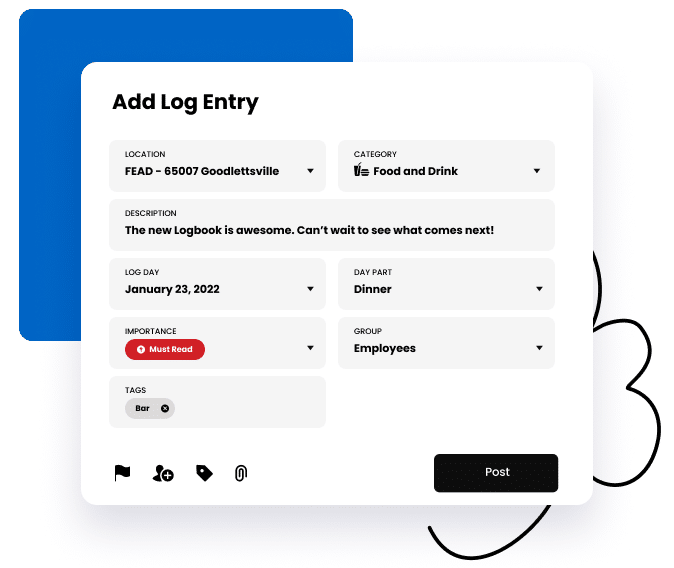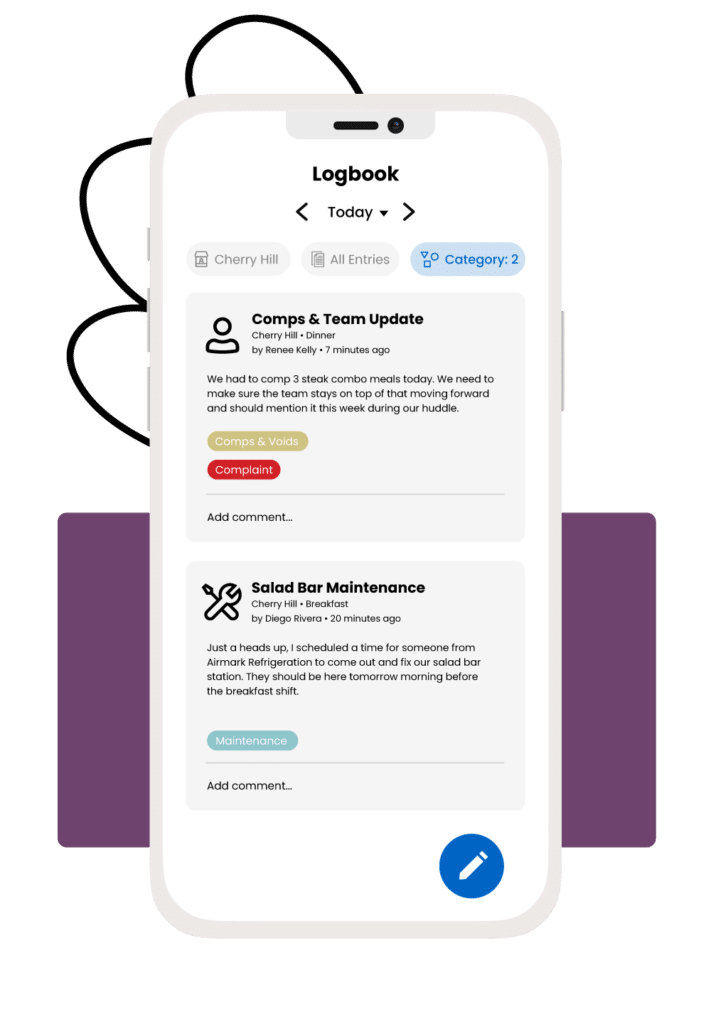This site uses cookies for analytics and to improve your experience. By clicking Accept, you consent to our use of cookies. Learn more in our privacy policy.
Managing a restaurant requires meticulous attention to detail, seamless communication, and efficient problem-solving. One of the most effective tools to achieve these goals is a restaurant manager logbook. Whether in physical or digital form, a logbook serves as a vital record-keeping system that ensures smooth operations and accountability. This guide explores the importance of restaurant logbooks, how to use them effectively, and why digital solutions are becoming the preferred choice.
A restaurant logbook is an essential organizational tool used to document daily operations, track incidents, and facilitate communication among management and staff. It serves as a centralized record-keeping system where managers log vital information such as staff performance, customer complaints, maintenance issues, and sales trends. Whether in a physical or digital format, a well-maintained logbook ensures that operational continuity is upheld, fostering efficiency and accountability within the establishment.

Effectively utilizing a restaurant logbook requires consistency and clarity. Follow these steps to ensure its proper use:
If streamlined communication, improved accountability, and operational clarity are priorities, then incorporating a restaurant logbook is a prudent decision. It helps mitigate miscommunication by ensuring that crucial details do not get lost in shift changes. For restaurants seeking to maintain high service standards and compliance with health regulations, a logbook becomes an indispensable asset.

The digital transformation of logbooks has significantly improved efficiency in restaurant management. Online logbooks offer cloud-based storage, ensuring that records are not misplaced or damaged. These platforms often come with search functionalities, time stamps, and restricted access controls, enhancing both security and usability. Additionally, digital logbooks integrate with scheduling and inventory software, providing a more holistic approach to restaurant operations. The automation of data entry and notifications further reduces human error, making digital logbooks the superior choice for modern establishments.

Blog Menu
See why more than 40,000 restaurants use Restaurant365
A restaurant manager logbook is a fundamental tool for maintaining order, ensuring clear communication, and tracking operational data. While traditional logbooks have served their purpose, digital alternatives offer enhanced functionality, security, and ease of access. Whether paper-based or digital, the key to maximizing the benefits of a logbook lies in consistent and accurate documentation. For restaurant managers aiming to optimize efficiency and accountability, embracing a structured logbook system is a step in the right direction
Share this blog:
Restaurant365 brings together accounting, operations, scheduling, and more in a flexible platform—empowering restaurants to choose the solutions they need and scale with confidence.